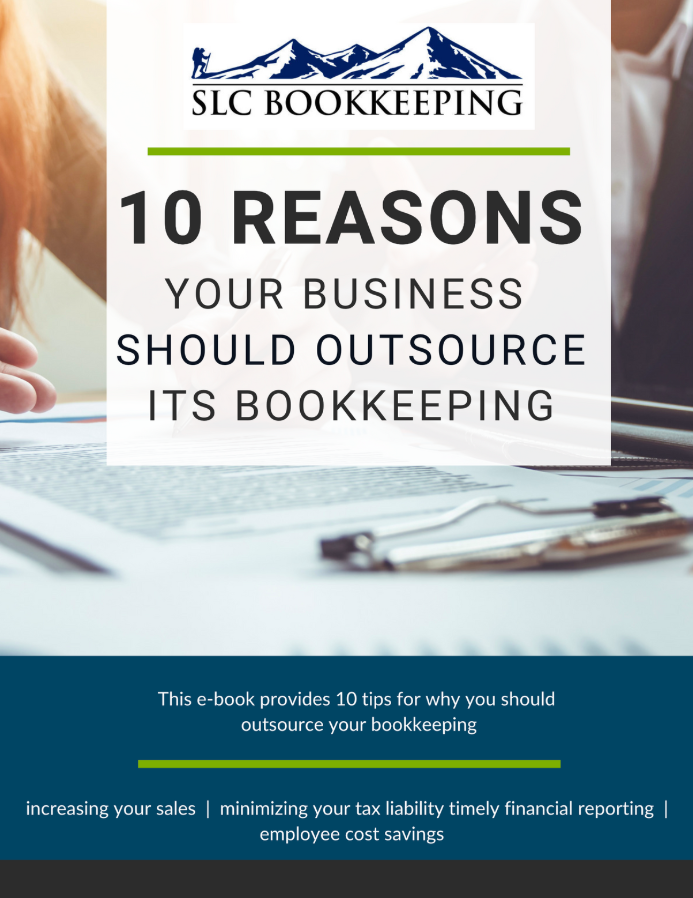Will Your Business Suffer If Your Bookkeeper Quits?
 Once in a while, we work with small business owners who dream that each employee will treat the business as if it is their own. They hope the employee will give everything they have to the business in order to see it succeed. These dream employees will work above and beyond, all day, every day. They will work into the foreseeable future and grow old with the business. Of course, these owners are dreaming and setting themselves up for disasters down the road when a key employee walks out unexpectedly. Nothing brings you screaming back to reality like when an employee, especially the bookkeeper, leaves and the business suffers. The consequences of losing a bookkeeper can have a negative impact on your business in both the short-term and long-term if you aren't prepared for it.
Once in a while, we work with small business owners who dream that each employee will treat the business as if it is their own. They hope the employee will give everything they have to the business in order to see it succeed. These dream employees will work above and beyond, all day, every day. They will work into the foreseeable future and grow old with the business. Of course, these owners are dreaming and setting themselves up for disasters down the road when a key employee walks out unexpectedly. Nothing brings you screaming back to reality like when an employee, especially the bookkeeper, leaves and the business suffers. The consequences of losing a bookkeeper can have a negative impact on your business in both the short-term and long-term if you aren't prepared for it.
The Bookkeeping System Isn't A System
We believe that bookkeeping needs to be made systematic; otherwise, the business could suffer if it's not and someone else needs to step in to handle the books. The daily, weekly, monthly, quarterly, or even annual bookkeeping tasks need to be documented in a manner that can be passed on if needed. That way, the bookkeeper can't hold your business hostage when they decide to move on. If one of us were to get hit by a bus, one of our colleagues could pick up where we left off since we excel at setting up systems and documenting processes.
We often get called in when a bookkeeper leaves in a blaze of glory and no one knows what the bookkeeping process is, because nothing is documented. The backlog of work that could pile up from losing a bookkeeper happens quickly. The clean-up and catch-up work costs both time and money, all while your business is suffering because you aren't up to date on how your key metrics are performing.
When Your Bookkeeper Isn't Even a Bookkeeper
Often, an entry-level employee will evolve into a bookkeeper as they spend time doing varying tasks within a small startup business. They start by opening the mail, answering phones, paying bills, and entering deposits in to QuickBooks. The next thing you know, they are your full-blown bookkeeper. Do they have an accounting education or other bookkeeping experience? If not, they may be setting the business up for trouble down the road. I once caught an owner contribution of $40,000 that was recorded as income, all because the prior bookkeeper didn't know to ask what the deposit was when they saw it hit the bank.
Maybe the owner doesn't realize that this is happening while this entry-level employee is handling sensitive financial information and they are still being paid as an entry-level employee. This can lead to bad blood between the owner and the bookkeeper. The end result usually isn't pretty.
Value In Outsourcing Your Bookkeeping
Many of the potential problems you could face if your bookkeeper quits can be alleviated by outsourcing your bookkeeping. Outsourced bookkeeping services understand how to build bookkeeping systems and processes that are scalable. The system, once built, can often be run by several different interchangeable people; not just one person who knows the system. Bookkeeping firms also hire professional and experienced bookkeepers, so you know you are getting a true professional. Finally, you are working with a business, not an individual. This will give you the peace of mind that your bookkeeping will always be handled properly and on time.
If your bookkeeper quit today, would your business suffer or continue to thrive?
Photo Credit: Canva


Comments